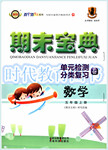ЬтФПФкШн
ЁОЬтФПЁПЖЬЮФИФДэ
МйШчгЂгяПЮЩЯРЯЪІвЊЧѓЭЌзРжЎМфНЛЛЛаоИФзїЮФЃЌЧыФуаоИФФуЭЌзРЕФвдЯТзїЮФЁЃЮФжаЙВга10ДІгябдДэЮѓЃЌУПОфжазюЖргаСНДІЃЛУПДІДэЮѓНіЩцМАвЛИіЕЅДЪЕФдіМгЃЌЩОГ§ЛђаоИФЁЃ
діМгЃКдкШБДЪДІМгвЛИіТЉзжЗћКХ (^)ЃЌВЂдкЦфЯТУцаДГіИУМгЕФДЪЁЃ
ЩОГ§ЃКАбЖргрЕФДЪгУаБЯп(\)ЛЎЕєЁЃ
аоИФЃКдкДэЕФДЪЯТЛЎЁЊКсЯпЃЌВЂдкИУЯТУцаДГіаоИФКѓЕФДЪЁЃ
зЂвтЃК1.УПДІДэЮѓМАЦфаоИФОљНіЯовЛДЪЃЛ
2.жЛдЪаэаоИФ10ДІЃЌЖрепЃЈДгЕк11ДІЦ№ЃЉВЛМЦЗжЁЃ
As is well know, when senior students graduate from school, most of their textbooks are thrown away, that are still in good condition. What waste of it ! I quite agree to the suggestion that we should recycle these textbooks. For one thing, recycling textbooks can save a lot of nature materials, which are used to making textbooks. For other, senior students may have plenty of useful notes on the pages. They are very helpful to those textbooks users. However , the cost of the books will unload some burden of the families of the students. Actually in Australia and some other countries, recycling textbooks are popular and that it gives us a good example. Why canЁЏt they have a try?
ЁОД№АИЁП
ЁО1ЁПknow--known
ЁО2ЁПthat--which
ЁО3ЁПwaste---a waste
ЁО4ЁПnature--natural
ЁО5ЁПmaking---make
ЁО6ЁПother--another
ЁО7ЁПHoweverЁЊBesides/Moreover
ЁО8ЁПare--is
ЁО9ЁПthat it--it
ЁО10ЁПthey--we
ЁОНтЮіЁП
ЪдЬтЗжЮіЃК
ЁО1ЁПknowЁЊknown ПМВьЖЏДЪЙ§ШЅЗжДЪЁЃДЫДІЮЊОфаЭas is known :змЫљжмжЊЃЌЙЪгУknownЁЃ
ЁО2ЁПthatЁЊwhich ПМВьЙиЯЕДЪЁЃИУОфЮЊЗЧЯожЦадЖЈгяДгОфЃЌаоЪЮВЙГфЧАУцећИіжїОфЃЌЙиЯЕДЪдкДгОфжазіжїгяЃЌЙЪгУwhichЁЃ
ЁО3ЁПwaste---a waste ПМВьЙкДЪЁЃДЫДІЮЊЙЬЖЈЖЬгяa waste ofЃКРЫЗбЃЌЙЪгУaЁЃ
ЁО4ЁПnatureЁЊnatural ПМВьаЮШнДЪЁЃаоЪЮУћДЪmaterialsгУаЮШнДЪЃЌЙЪгУnaturalЁЃ
ЁО5ЁПmaking---make ПМВьЗЧЮНгяЖЏДЪЁЃИљОнгяОГПЩжЊЃЌДЫДІbe used to втЫМЮЊЃКБЛгУРДзіЃЌЙЪКѓНгВЛЖЈЪНЃЌЙЪгУmakeЁЃBe used to doingЃКЯАЙпзіЁЃ
ЁО6ЁПotherЁЊanother ПМВьДњДЪЁЃДЫДІЮЊНсЙЙfor one thingЃЌfor anotherЃКвЛЗНУцЃЌСэвЛЗНУцЃЌЙЪгУanotherЁЃ
ЁО7ЁПHoweverЁЊBesides/Moreover ПМВьИБДЪЁЃИљОнгяОГПЩжЊЃЌЧАКѓЮФЕФТпМЙиЯЕЪєгкВЂСаЕнНјЙиЯЕЃЌЙЪгУbesidesЛђепmoreoverЁЃ
ЁО8ЁПareЁЊis ПМВьbeЖЏДЪЁЃИУОфжїгяЮЊrecycling textbooksЃЌЙЪЮНгяЖЏДЪгУЕЅЪ§isЁЃ
ЁО9ЁПthat itЁЊit ПМВьСЌДЪЁЃДЫДІЮЊВЂСаОфЃЌСНИіОфзгЯрЖдЖРСЂЃЌЙЪШЅЕєthatЁЃ
ЁО10ЁПtheyЁЊwe ПМВьДњДЪЁЃИљОнгяОГПЩжЊЃЌБОЮФНщЩмНЬВФЕФЛиЪедйРћгУЃЌвђДЫКєгѕЮвУЧгІИУетУДзіЃЌЙЪгУweЁЃ
ЁОУћЪІЕуВІЁП
ЙиЯЕДњДЪasгыwhichЕФгУЗЈЧјБ№
(1) as КЭwhichЖМПЩв§ЕМЗЧЯожЦадЖЈгяДгОфЃЌЗХдкжїОфжЎКѓЃЛдкЗЧЯожЦадЖЈгяДгОфжаГфЕБДгОфЕФжїгяЁЂБігяЛђБэгяЁЃШчЃК
Tom has found a good job, as / which we all hope. ЬРФЗевЕНСЫвЛМўКУЙЄзїЃЌете§ЪЧЮвУЧДѓМвЫљЯЃЭћЕФЁЃ
(2) as КЭwhichЖМПЩДњБэећИіОфзгЕФФкШнЛђжїОфжаЕФФГвЛГЩЗжЁЃШчЃК
His mother is ill, which makes him very sad. ЫћФИЧзВЁСЫЃЌетМўЪТЧщЪЙЫћКмФбЙ§ЁЃ
He has made great progress, as / which makes us very happy. ЫћНјВНСЫЃЌетЪЙЕУЮвУЧКмИпаЫЁЃ
вдЩЯСНОфжаЕФas / whichЖМжИЧАУцећИіОфзгЕФФкШнЁЃ
Though he has lots of money, he still rides his old bike, which was bought ten years ago. ОЁЙмЫћКмгаЧЎЃЌЕЋЪЧЫћЛЙЦязХЫћЕФОЩЕЅГЕЃЌетЕЅГЕЪЧЪЎФъЧАТђЕФЁЃ
There you can meet many writers as you have ever read in books. дкФЧРяЃЌФуПЩМћЕНФудкЪщжаЫљЖСЙ§ЕФКмЖрзїМвЁЃ
ЁіasгыwhichЕФЧјБ№
(1) ЕБЯШааДЪЧАУцгаso + adj. + a / such + (a) + adj. , the sameЕШДЪаоЪЮЪБЃЌв§ЕМДЪжЛФмгУasЃЌЖјВЛгУwhichЁЃШчЃК
She is so nice a girl as we all like. Ы§ЪЧИіЮвУЧДѓМвЖМЯВЛЖЕФШчДЫКУЕФХЎКЂЁЃ
It is such an interesting book as we all want to read. ЫќЪЧБОЮвУЧДѓМвЖМЯыЖСЕФгаШЄЕФЪщЁЃ
ЩЯУцСНОфжаЕФasОЭВЛФмгУwhichЬцЛЛЁЃ
(2) as дкДгОфжаГЃзїБігяЃЛзїжїгяЪБЃЌДгОфЕФЮНгяЖЏДЪГЃЮЊЯЕЖЏДЪЃЌМДЃКЯЕБэНсЙЙЛђБЛЖЏНсЙЙЁЃШчЃК
As you expected, he turned up on time. е§ШчФуЫљдИЃЌЫћАДЪБЕНСЫЁЃ
As is said above, he has conquered the difficulty. е§ШчЩЯУцЫљЫЕЃЌЫћеїЗўСЫРЇФбЁЃ
(3) ЕБЗЧЯожЦадЖЈгяДгОфЗХЕНжїОфЕФЧАУцЪБЃЌв§ЕМДЪжЛФмгУasЃЌЖјВЛгУwhichЁЃШчЃК
As is planned, we got there before eight. е§ШчМЦЛЎЃЌЮвУЧдйАбЕъЧАЕНДяСЫФЧЖљЁЃ
(4) Asв§ЕМЕФЗЧЯожЦадЖЈгяДгОфжИБэЪОЛ§МЋЕФвтвхЃЌгыжїОфЪЧЫГРэГЩеТЕФЙиЯЕЃЌОјВЛФмгыжЎУЌЖмЁЃШєЗЧЯожЦадЖЈгяДгОфБэЪОвЛжжЯћМЋЕФвтвхЃЌдђжЛгУwhichЁЃШчЃК
He has succeeded in his career, as / which we all hope. ЫћдкЪТвЕжаГЩЙІСЫЃЌете§ЪЧЮвУЧДѓМвЫљЯЃЭћЕФЁЃ
Her grandma died last week, which made her very sad. Ы§ЕФФЬФЬЪХЪРСЫЃЌетЪЙЕУЫ§КмБЏЩЫЁЃ
(5) ЕБЗЧЯожЦадЖЈгяДгОфЕФв§ЕМДЪЧАУцгаНщДЪЪБЃЌжЛФмгУwhich, ЖјВЛПЩгУ asЁЃШчЃК
He has a new computer, for which he paid nearly ten thousand yuan. ЫћгавЛЬЈаТЕчФдЃЌетЬЈЕчФдЛЈСЫЫћНЋНќвЛЭђдЊЁЃ
(6) ЕБЙиЯЕДњДЪДњЬцжїОфжаЕФБігяДгОфЛђИДКЯНсЙЙ(ШчЃКБі+ВЙЃЛВЛЖЈЪНЖЬгяЃЛЖЏДЪ-ingаЮЪНЖЬгяЕШ) ЪБЃЌвЛАужЛФмгУwhich, ЖјВЛгУ asЁЃШчЃК
She told us that there was something wrong with her bike, which was trueЁЃЫ§ИцЫпЮвУЧЫЕЫ§ЕФЕЅГЕГіСЫУЋВЁЃЌетЛАЪЧецЕФЁЃ
He asked her to help him with his English, which she did. ЫћЧыЫ§НЬЫћбЇгЂгяЃЌЫ§ЕФШЗАяСЫЁЃ
(7) ЙиЯЕДњДЪНіДњБэжїОфжаЕФЮНгяВПЗжЪБЃЌДгОфжаЮНгяВПЗжБЛЪЁТдЖјжЛБЃСєЧщЬЌЖЏДЪЕФЗёЖЈЪНЛђжњЖЏДЪЗёЖЈЪНЃЌв§ЕМДЪвЛАужЛгУwhich, ЖјВЛгУasЁЃШчЃК
He speaks English very fluently, which I canЁЏt. ЫћЕФгЂгяЫЕЕУЗЧГЃСїРћЃЌетЮвПЩВЛааЁЃ
(8) ЙиЯЕДњДЪзїЖЈгяаоЪЮКѓУцЕФУћДЪЪБЃЌвЛАужЛгУwhich, ЖјВЛгУasЁЃШчЃК
He suggested going swimming in the river, which idea we agreed with. ЫћЬсвщШЅКгРягЮгОЃЌЮвУЧОЭЭЌвтСЫЫћЕФЯыЗЈЁЃ
(9) ЕБЙиЯЕДњДЪНіДњБэжїОфжаЕЅИіЕФУћДЪЪБЃЌвЛАужЛгУwhich, ЖјВЛгУasЁЃШчЃК
He sent me a beautiful present, which I valued very much. ЫћИјМФРДСЫвЛМўОЋУРЕФРёЮяЃЌЮвЖдЫќЗЧГЃефЪгЁЃ
(10) as дкЗЧЯожЦадЖЈгяДгОфжаЃЌЛЙГЃИњsuchСЌгУЁЃШчЃК
There was a look of love in the teacherЁЏs eyes, such as mothers have for their children. РЯЪІблРяСїТЖГіЖдЫћЯВАЎЕФЩёЧщЃЌОЭКУЯёФИЧзЖдКЂзгЕФЯВАЎЁЃ
(11) asГЃгУгквЛаЉЙЬЖЈНсЙЙжаЁЃШчЃК
as is well known / as we all know жкЫљжмжЊЃЛ as is said above е§ШчЩЯУцЫљЫЕЃЛ
as might be imagined е§ЯёЫљЯыЯѓЕФФЧбљЃЛ as is reported ШчБЈЕРЫљЫЕЃЛ
as has been pointed ШчЫљжИГіЕФФЧбљЃЛ as is expected е§ШчЫљСЯЁЃ

 ЦкФЉБІЕфЕЅдЊМьВтЗжРрИДЯАОэЯЕСаД№АИ
ЦкФЉБІЕфЕЅдЊМьВтЗжРрИДЯАОэЯЕСаД№АИ